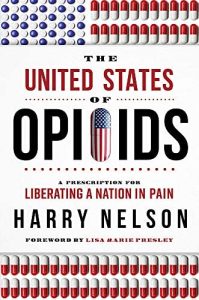
Lisa Marie Presley was just 54 when she suffered a heart attack and died on July 12. The sudden nature of her death at such an age has inspired discussions about women’s health and heart disease. It turns out Lisa Marie, the only daughter of Elvis Presley, had a family history of heart disease that impacted her health. But how exactly does that factor in?
As it turns out, the likelihood of experiencing symptoms of any condition is a Punnett square – in more ways than one. Yes, having certain traits on one or both sides of the family is a huge factor. But expressing a disease is also influenced by both genetics and environment, including a person’s lifestyle choices, hygiene of their space, diet, access to healthcare, and other individual choices. So, what can be learned about heart health and Lisa Marie’s particular case to stay protected?
The genetic factors contributing to Lisa Marie Presley’s heart health

Lisa Marie is Elvis’s only daughter with Priscilla Presley. Going back through his line, it was Elvis’s mother Gladys Love Presley who suffered heart failure in 1958; it ultimately took her life when Gladys was only 46. The loss saw Elvis emotionally devastated. Meanwhile, his father, Vernon Presley, died in 1979 at the age of 63; the cause of death is also listed as cardiac arrest.
RELATED: Lisa Marie Presley Was Deeply In Debt Before She Died
It’s worth note that heart failure and cardiac arrest are not the same thing. Cardiac arrest refers to the heart completely stopping while heart failure means the heart is working but not nearly enough; it is not pumping as much blood as the body needs. Both, ultimately have the potential to be fatal. In fact, recent studies show that while there used to be an 80% survival rate for chronic heart failure, that number has dropped to 50%, then 30% over the decades.
The lifestyle influence

Now, picture that Punnett square from biology class. Instead of A or a, and B or B, use genetics and lifestyle; these are both influential in whether a person is impacted by diseases. A person can have a family history of heart disease and that will definitely be important to be aware of. But lifestyle choices have some power too. Sadly, Lisa Marie battled addiction, which would impact her heart health negatively.

In Harry Nelson’s book The United States of Opioids: A Prescription for Liberating a Nation in Pain, Lisa Marie spoke transparently about her addiction to painkillers and opioids. “You may read this and wonder how, after losing people close to me, I also fell prey to opioids,” she said. “I was recovering after the [2008] birth of my daughters, Vivienne and Finley, when a doctor prescribed me opioids for pain. It only took a short-term prescription of opioids in the hospital for me to feel the need to keep taking them.” While she battled her addictions, she also wanted to be open about the topic so others could seek help and receive the encouragement they needed to break the habit too. “It is time for us to say goodbye to shame about addiction,” she asserted. We have to stop blaming and judging ourselves and the people around us … That starts with sharing our stories.”
Among the many effects opioids have on the body, they can change the rhythm of a person’s heart, usually slowing the rate down. It also affects its electrical activity. The heart is the strongest organ in the body and for it to be at all damaged by such a powerful substance can have devastating consequences. It is important to be as aware as possible of your family health history and make lifestyle choices that do not exacerbate anything that might be passed on.

